3/16
Plant-Based Leaders | P2 Science Inc.
Green Chemistry Company Converts Renewable Feedstocks into High-Value Specialty Products


Chief Executive Officer of P2 Science Inc.
While single use plastics made from plants may get the lion’s share of media attention, the green chemistry industry is many times larger and significantly more diverse.
In fact, the field of green chemistry offers an incredible opportunity for American scientists and companies to improve existing products – from cosmetics to paints to industrial silicones – or create wholly new products, all while reducing the impact on the planet.
P2 Science is one of the companies at the center of this green chemistry revolution. Today, the company is backed by an incredible range of minority investors, including chemical giant BASF, French luxury fashion house Chanel and Yale University.
In fact, it was founded by Yale scientists, one of whom is often called “the father of green chemistry,” Paul Anastas.
P2 Science was spun-out of campus labs and today is delivering new, sustainable chemical innovations significantly faster than the U.S. government can approve their inventions. Their impressive discoveries also come with incredible origin stories, as told by Neil Burns, the company’s CEO.
How Hazy Forests Led to Sustainable Products

The haze hanging above the rainforest canopy on a warm day is the result of the “air oxidation” process – tree oils interacting with oxygen – and it occurs in all forests around the planet.
“It’s quite a sweet smell, if you’ve been around it,” said Neil.
That sweet smell led them to wonder: could they capture that fragrance?
“We thought, how can we recreate this haze as an industrial practice, in a way that’s controllable, scalable, safe and economical? Eventually, we ended up patenting a process,” said Neil.
And they had an idea about which industry might value such a product.
Consumer Demand Drives Sustainability
“Ten years ago, cosmetics and personal care were ahead of the pack — focused on sustainability and naturally derived ingredients in particular because they’re put on the skin and the hair,” said Neil.
But how to break into such a well-established industry?
“Very early on, we visited the top five or six fragrance and cosmetic companies, to get a sense of what would be interesting to them, the things they valued,” said Neil.
It turns out those companies were exceptionally open to opportunities to improve the renewability and sustainability of their products, as a result of consumer demand.
“They were happy to look at new chemistry and new ingredients,” said Neil, describing those early meetings. “And I was quite struck by their openness and the enthusiasm for new ideas.”
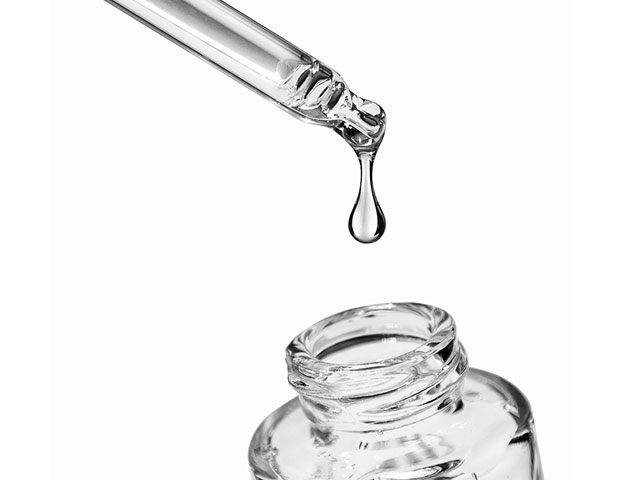
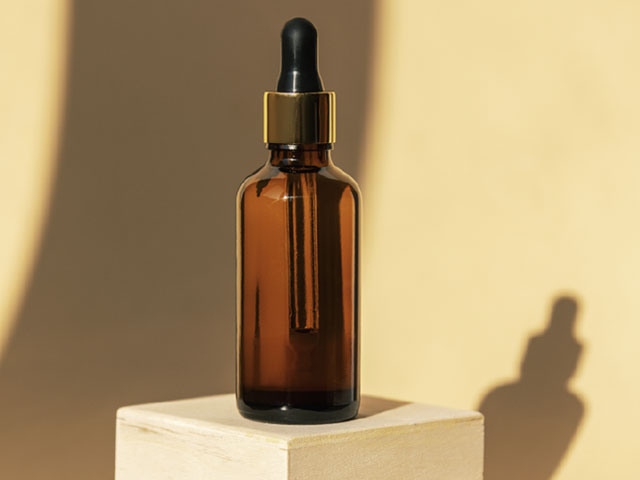
The ideas inspired by those haze-emitting trees have generated P2 Science’s largest business segments to-date – cosmetics, including fragrances and skin care products and shampoos. P2 Science’s contributions to these products are entirely derived from sustainable plants.
Today, that same green chemistry process creates fragrances for many laundry detergents as well.
Accidental Discovery Leads to New Potential Green Products
Not every discovery is the result of careful planning and genius-level observations of the natural world, though – some are lab accidents.
“Citropol was a fortuitous discovery. We had been converting terpenes in the lab into different types of aroma chemicals and we unintentionally polymerized some,” explains Neil.
Basically, they accidentally turned some green chemicals from plants into a long flexible string that looked and acted like silicon fluid.
For the uninitiated, silicon is extracted from quartz sand, silicones are the man-made petro-chemicals derived from silicon.
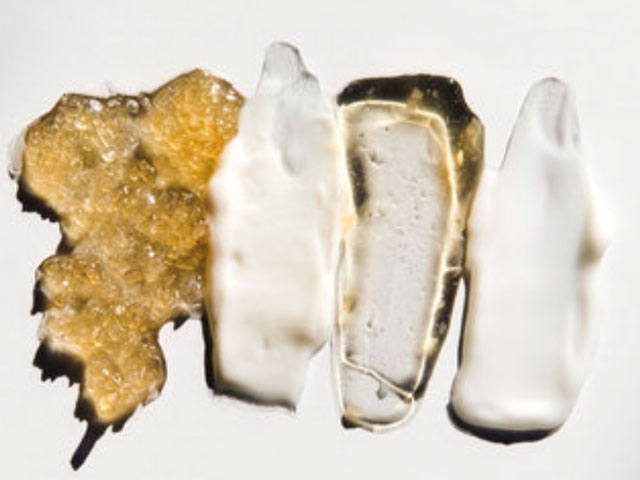
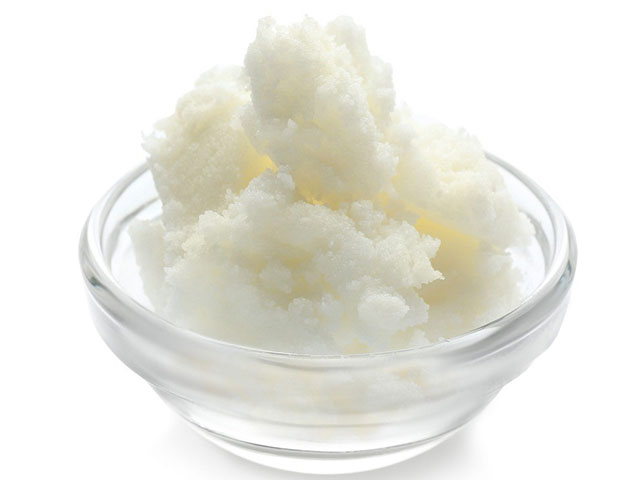
“Many skin and haircare products contain silicones because they give the products a great skin-feel – a lot of lubricity and shine. But silicones have some environmental concerns attached. They persist in the environment for a long, long time,” added Neil.
In fact, in recent years, certain silicones have been banned in the EU and are today under scrutiny in the U.S.
But P2 Science had just created a renewable, plant-based silicon that won’t persist in the environment.
“We started doing some tests and made some formulations and long story short, what we created functions very similarly to silicones,” said Neil.
“And what we ended up making – by accident – no one in the world had ever made before. This was a brand-new composition of matter,” he added, still sounding a little bit astonished at the team’s discovery.
Now that P2 Science holds an entire suite of patent families on its discovery, the opportunities extend far beyond cosmetics and personal care.
There are thousands of industrial applications for silicone today — sealants, adhesives, lubricants, thermal insulation and electrical insulation are just a few examples.
“We expect it to become a very significant part of our business,” added Neil.
Green Chemistry – American Made

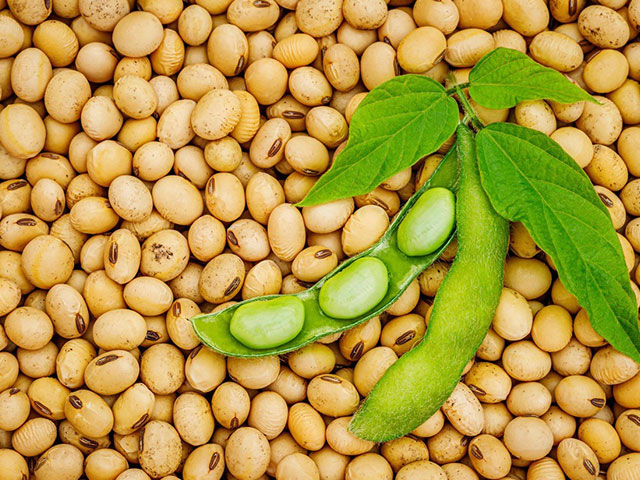

P2 Science utilizes an incredible range of feedstocks for its various products, from pine tree byproducts to various vegetable oils including soybean oil, canola, rapeseed, castor oil and sunflower oil.
And 95% of their feedstocks are sourced from North America.
All of their inventions originate in the U.S. as well. Their labs are based in Connecticut, just a ten-minute drive from Yale’s campus, where it all began.
“We’re still pretty small, 24 employees full time, with eleven in the lab.,” explains Neil.
But the innovations created by these jobs are a multiplier, potentially creating new jobs in manufacturing and other industries.
Green Chemistry – Green Field Innovation
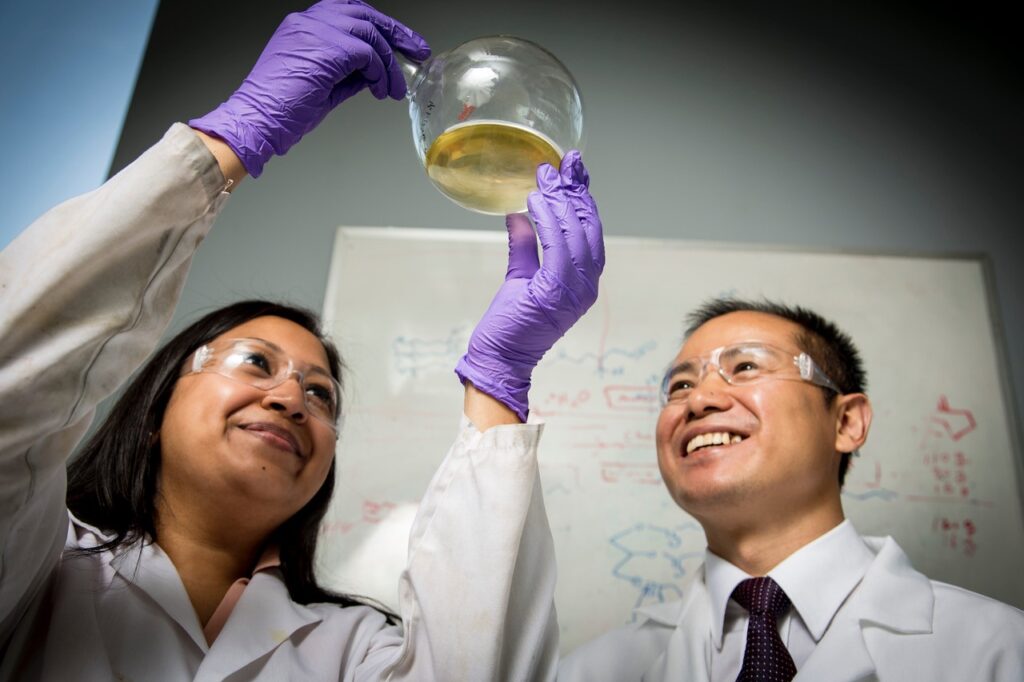
Perhaps most impressively, those eleven lab workers are responsible for 47 patent families now held by P2 Science. One-third of them were filed in 2021.
How is it possible to create so much with such a small team?
Neil explains: “Wherever chemistry can be deployed – and chemistry is part almost every single thing that we as a species use today – green chemistry can be substituted.”
That creates an incredible opportunity for the American green chemistry sector.
“We are ramping up our patenting activity as we develop new technology. It’s a bit crazy. But there is more commercial activity to come based on our new technologies,” explains Neil.
They have even moved into a new area for the business, building a patent portfolio for new ways to extract chemicals from existing plants.
And they’re looking at an incredible range of new products, from paints and coatings to adhesives and sealants – all made from natural, renewable plants.
One product with P2 Science ingredients that the company loves to talk about: waterless cleaning products for personal care. Think waterless shampoo or soap – products that don’t need big plastic bottles but instead come in dissolvable packaging.
“A company called Nohbo went on Shark Tank to seek support, and Mark Cuban became an investor,” said Neil. “P2 Science’s contributions are one of the secret ingredients, the lynchpin that makes their products work.”
Green Chemistry Meets Red Tape

In the U.S., regulation of chemical substances is largely divided by end use. Cosmetics and personal care products have their own regulatory regime. Food and pesticides have different regulatory regimes.
Everything else, mostly industrial, is governed by the Environmental Protection Agency, under the TSCA program – the Toxic Substances Control Act.
“Getting something through TSCA today can take years,” explains Neil. Our understanding is the major reason for that is the sheer backlog, the volume of cases.”
“And that makes it difficult for folks to innovate and bring products to market,” added Neil. “I don’t know how we fix it, whether it’s more resources or a streamlined process.”
The Volvo Innovation Prize
Even while facing such red tape, P2 Science continues to innovate, and earn impressive recognition for that work.
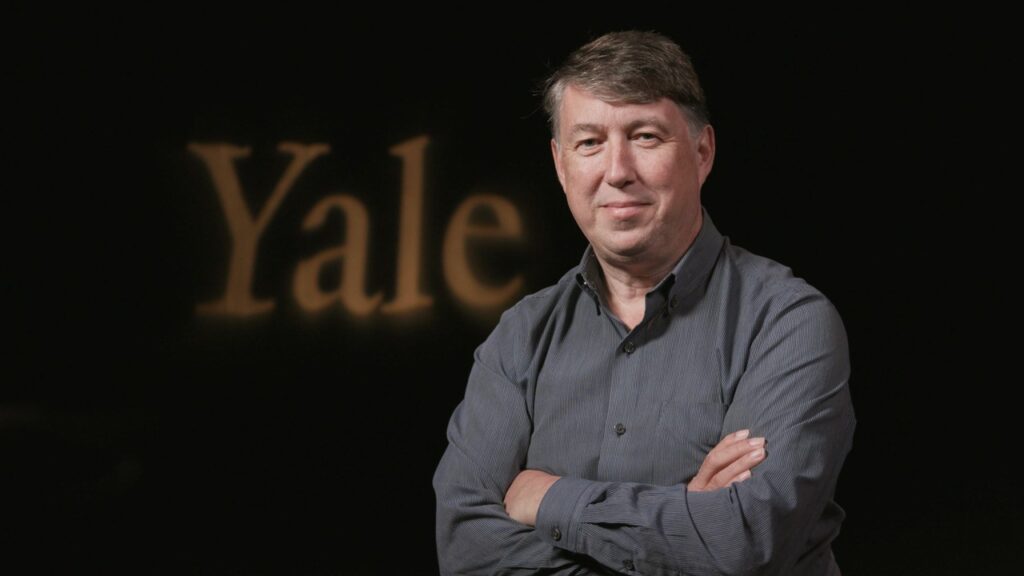
Just last year Volvo granted its prestigious Innovation Prize, one of the world’s most respected scientific environmental awards, to P2 Science’s Paul Anastas, the father of green chemistry.
Volvo called him, “A pioneer in developing non-hazardous chemicals” and said his research “is revolutionizing the chemical industry, a key contribution to meeting the sustainability challenge.”
We think so too, and we can’t wait to see what come next from the labs of P2 Science and Yale.
Interested in learning more about how plant-based products contribute to a more sustainable economy? Sign up for our newsletter.
